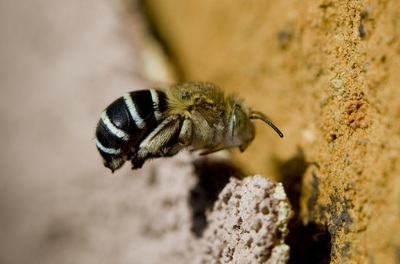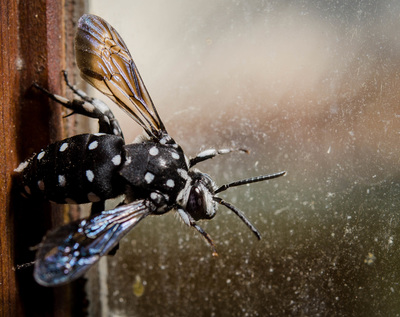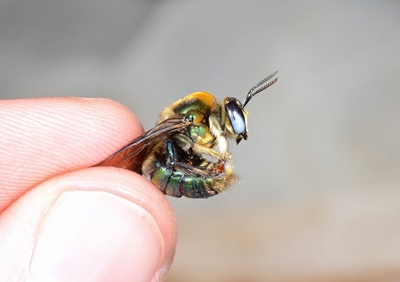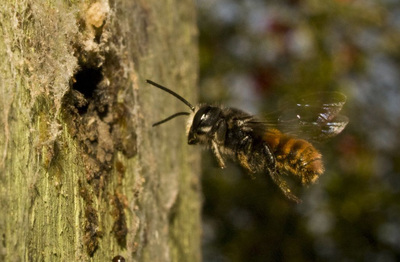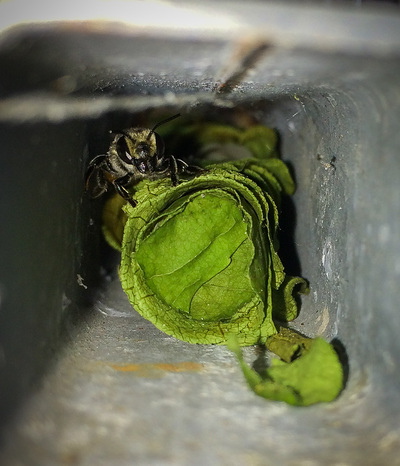There are 1650+ native bee species in Australia (estimated total 2000+), about 230 of which are found in the greater Brisbane region. Most of these are solitary or semi-social bee species, which don't make honey and nest as single individuals, often in burrows in the soil. A small number of species are highly eusocial, however, and live in large perennial colonies and make and store honey. These highly eusocial species are the stingless bees. See the sections below on bee sociality and nesting.
Some common native bee species encountered in Brisbane and SE QLD
Hover mouse over image to see caption information about each
Hover mouse over image to see caption information about each
Bee Sociality: To bee a socialite or a loner, that is the question
When most people think of bees they think of queens, honey and hives. But in fact only around 3% of the world's 20,000+ bee species are highly eusocial and live in colonies. Most of the world's bees are solitary; single female bees nesting and working by themselves, interacting with another bee only when they mate. Sociality in bees is a scale, with highly social behaviour at the top end and truely solitary behaviour at the bottom end. There are, however, many other levels of sociality between these two extremes, including various forms of semi-sociality and primitive eusoiciality.
Nesting strategies of Australian Native Bees
Australia's bees have a diversity of different strategies for nesting. It is important to understand the different locations and materials that bees use to nest, so that we can collectively make better decisions to protect these resources where ever we can. Here are a some examples of common nesting strategies used by Australian native bee species.
Ground nesting bees
Most of Australia's bees nest in the ground. These are mostly solitary or communal species. Some of the more common ground nesting bees include blue banded bees and teddy bear bees, and emerald Homalictus bees and green lantern bees.
Above ground nesting bees
Broadly, native above ground nesting bees can be divided into two main groups: those that nest in preexisting cavities and those that make their own cavities. Eusocial stingless bees fall into the first category, as do leaf cutter bees and resin bees. Bees that make their own cavities include carpenter bees and reed bees.
Native bees in schools - Native bee education - Pollination education - Food production in schools
Native bees for schools - School incursions - Native bee workshops for schools - Bee education
Buy hives - Queensland - New South Wales
Brisbane - Gold Coast - Byron Bay
Native bees for schools - School incursions - Native bee workshops for schools - Bee education
Buy hives - Queensland - New South Wales
Brisbane - Gold Coast - Byron Bay


